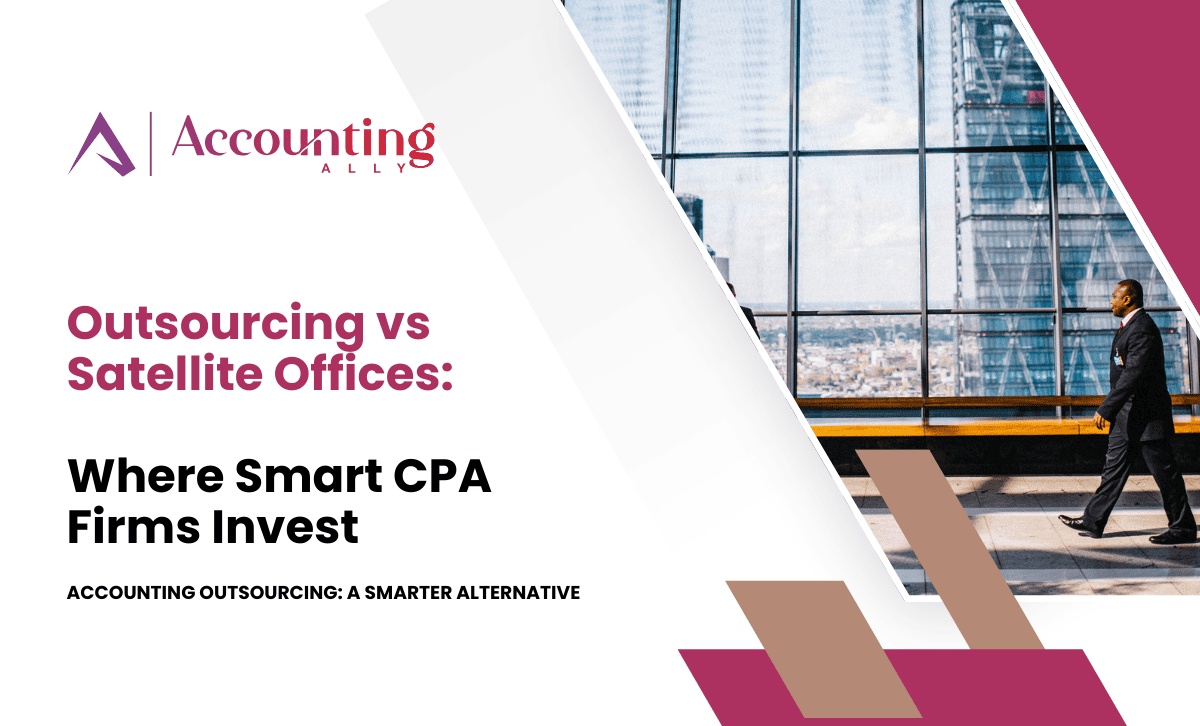How Outsourced Audit Support Can Help You Meet Compliance Deadlines
In today’s complex regulatory landscape, meeting compliance deadlines is essential for every business. Failing to comply with financial regulations or missing critical deadlines can lead to fines, legal issues, and reputational damage. For growing businesses, balancing day-to-day operations with audit preparations can be overwhelming. This is where outsourced audit support services can make all the difference.
In this blog, we’ll explore how outsourced audit support can help businesses stay organized, reduce risks, and meet compliance deadlines with ease.
1. Access to Expertise and Industry Knowledge
Audit services and compliance requirements are constantly evolving, making it difficult for internal teams to stay current with the latest regulations and standards. This is where outsourcing accounting services and audit support become invaluable. By outsourcing, businesses gain access to professionals with deep industry knowledge and extensive experience in navigating complex compliance requirements.
These experts stay up-to-date with changing regulations, ensuring that your business remains compliant and avoids costly mistakes. By leveraging their expertise, you can be confident that every aspect of your audit process is handled accurately and efficiently.
2. Efficient Deadline Management
One of the biggest challenges in meeting compliance deadlines is managing multiple tasks and responsibilities at once. Internal teams often have limited bandwidth, making it difficult to meet audit-related deadlines while juggling other priorities.
Outsourced audit support services help by creating structured timelines and processes to ensure that deadlines are met without compromising accuracy. They track important milestones, follow up on outstanding tasks, and provide timely updates to keep the process on schedule.
By outsourcing, businesses can avoid last-minute scrambles and reduce the stress associated with looming compliance deadlines.
3. Streamlined Data Collection and Documentation
Preparing for an audit requires gathering and organizing a significant amount of financial data and documentation. This process can be time-consuming and prone to errors if not handled properly.
CPA audit firms offer outsourced audit support teams that use advanced tools and proven methods to streamline data collection and organization. They ensure that your documentation is accurate, complete, and readily available when needed. This not only saves time but also reduces the risk of delays caused by missing or incomplete information.
4. Enhanced Accuracy and Reduced Risk of Errors
Mistakes in financial reporting can have serious consequences, from penalties to reputational damage. Tight deadlines often increase the risk of errors, especially when internal teams are stretched thin.
Outsourced audit support services bring a fresh perspective and an objective approach to your financial data. With their expertise, they can identify potential issues early and correct them before they escalate. This ensures accurate and reliable financial reporting, helping you avoid risks and penalties.
5. Scalability to Meet Growing Needs
Compliance and audit requirements can vary depending on the size and industry of your business. As your company grows, so do your compliance obligations. Internal teams may struggle to keep up with increasing demands, leading to missed deadlines and errors.
Outsourced audit support offers the flexibility to scale services based on your business’s changing needs. Whether you require additional support during peak audit seasons or ongoing assistance, outsourcing provides a scalable solution that grows with your business.
6. Proactive Compliance Monitoring
Staying compliant isn’t just about meeting deadlines—it’s about adopting a proactive approach to risk management. Audit services help businesses implement systems and processes that ensure ongoing compliance.
These professionals can conduct regular compliance checks, monitor key performance indicators, and recommend improvements to strengthen your internal controls. This proactive approach minimizes the risk of non-compliance and ensures that your business is always prepared for upcoming audits.
7. Cost Savings and Resource Efficiency
Hiring and training an internal team to manage accounting and auditing can be expensive and time-consuming. For small and mid-sized businesses, this may not be a practical option. Outsourcing accounting services offers a cost-effective alternative, allowing you to access expert-level services without the overhead costs of maintaining an in-house team.
By outsourcing, you can focus your resources on core business activities while ensuring that your compliance needs are met professionally and efficiently.
8. Reduced Stress and Peace of Mind
Meeting compliance deadlines can be stressful, especially for businesses with limited experience in audits and financial reporting. The pressure to deliver accurate data on time can weigh heavily on internal teams, affecting productivity and morale.
Outsourced audit support services act as trusted partners, handling the complex aspects of the audit process so you don’t have to. With their help, you can reduce the burden on your internal team and gain peace of mind knowing that your compliance obligations are in expert hands.
9. Technology-Driven Audit Solutions
With advancements in technology, outsourced audit support services leverage AI and automation tools to enhance efficiency and accuracy. These tools help streamline processes such as data extraction, anomaly detection, and compliance tracking, making audits more effective and less labor-intensive.
10. Industry-Specific Audit Considerations
Every industry has unique compliance and audit requirements. Whether you operate in healthcare, finance, manufacturing, or another sector, CPA audit firms can provide industry-specific expertise to ensure you meet sector-specific regulations with precision.
11. Choosing the Right Outsourcing Partner
Selecting the right accounting and auditing firm is crucial for successful audit support. Look for providers with a proven track record, industry experience, and customized service offerings that align with your business needs.
Conclusion
Meeting compliance deadlines is non-negotiable, but it doesn’t have to be a stressful, all-consuming process. Outsourced audit support services offer businesses the expertise, efficiency, and flexibility needed to navigate audits with ease. By partnering with a trusted provider, you can ensure timely, accurate reporting while freeing up internal resources to focus on growth and innovation.
Frequently Asked Questions (FAQs)
Q1: What are outsourced audit support services?
Outsourced audit support services involve external professionals who assist businesses in preparing for audits, ensuring compliance with financial regulations, and managing audit-related tasks efficiently.
Q2: Why should I outsource audit support instead of handling it in-house?
Outsourcing audit support provides access to expert knowledge, reduces internal workload, enhances accuracy, and helps businesses meet compliance deadlines without unnecessary stress.
Q3: How do outsourced audit services improve accuracy?
Professionals in outsourced audit services use advanced tools and methodologies to ensure data accuracy, identify errors early, and maintain compliance with financial regulations.
Q4: Is outsourcing audit support cost-effective?
Yes, outsourcing is often more cost-effective than hiring and maintaining an in-house audit team. It allows businesses to access expertise without the added overhead costs.
Q5: How do I choose the right outsourced audit support provider?
Look for providers with a strong industry reputation, relevant experience, and the ability to tailor their services to your business needs.






